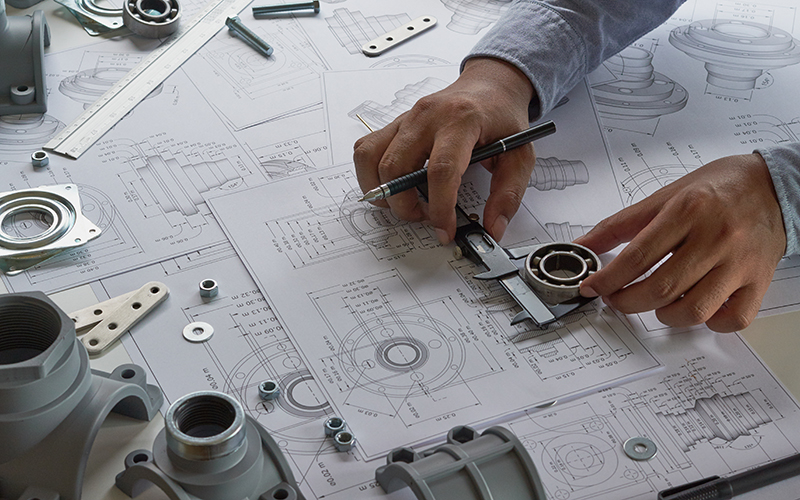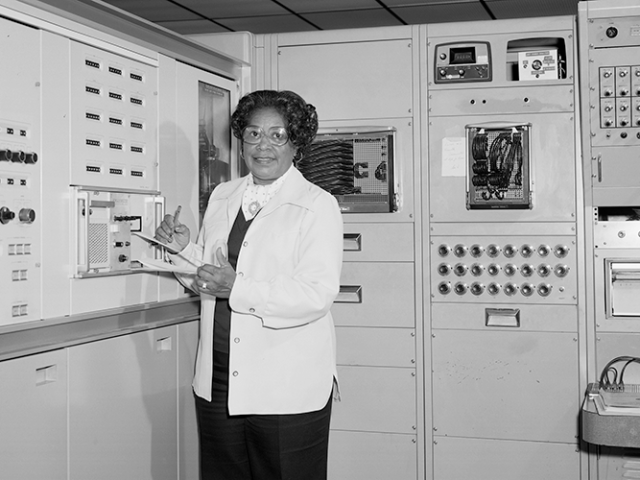In the dynamic and ever-evolving world of engineering, the role of a mechanical engineer remains not only vital but also increasingly multifaceted. From designing complex machinery to spearheading innovative manufacturing processes, mechanical engineers play a pivotal role in shaping the modern world. However, breaking into this competitive field demands not only a strong educational foundation but also a range of critical skills and a deep understanding of the diverse areas of mechanical engineering.
The role of a mechanical engineer
Mechanical engineers are the architects of modern machinery, systems, and processes. They are responsible for the design, analysis, and maintenance of a broad spectrum of mechanical systems, including engines, machines, and manufacturing equipment. They work across various industries, ranging from automotive and aerospace to energy and manufacturing, with the primary goal of improving efficiency, reliability, and sustainability. Their work often involves conceptualising, designing, testing, and overseeing the production of mechanical devices, ensuring they meet industry standards and safety regulations.
The skills necessary to become a successful mechanical engineer
To excel in the field of mechanical engineering, one must possess a diverse skill set. Mechanical engineers must possess a blend of technical, analytical, and interpersonal skills to effectively navigate the complexities of the profession. Here’s an expanded view of the skills necessary to thrive as a mechanical engineer:
- Analytical skills: Mechanical engineers must be adept at analysing complex problems and devising effective solutions. They often encounter intricate mechanical issues that require a systematic approach to identify the root cause and develop appropriate solutions. Strong analytical skills enable them to assess various design options and make informed decisions to optimise performance and efficiency.
- Problem-solving abilities: The ability to approach challenges creatively and systematically is vital in mechanical engineering. Engineers must be able to identify issues, propose viable solutions, and implement effective strategies to overcome obstacles. Effective problem-solving skills enable mechanical engineers to streamline processes, improve product functionality, and enhance overall performance.
- Proficiency in CAD software and other tools: Competency in computer-aided design (CAD) software and other engineering tools is essential for creating, simulating, and testing mechanical designs. Familiarity with programs like SolidWorks, AutoCAD, and ANSYS enables engineers to develop detailed models, conduct simulations, and analyse the performance of various mechanical components and systems.
- Technical knowledge: A strong foundation in core engineering principles, including mechanics, thermodynamics, and materials science, is fundamental for mechanical engineers. Understanding the fundamental laws of physics and their applications in designing and analysing mechanical systems is crucial for developing innovative solutions and ensuring the efficient operation of machinery and equipment.
- Communication skills: Mechanical engineers frequently collaborate with cross-functional teams, including other engineers, project managers, and clients. Effective communication skills, both verbal and written, are essential for conveying technical concepts, presenting project proposals, and providing comprehensive reports. The ability to articulate complex ideas in a clear and concise manner is critical for successful project management and client engagement.
- Attention to detail: In the design and development of mechanical systems, precision is paramount. Mechanical engineers must pay meticulous attention to detail to ensure the accuracy and reliability of their work. A keen eye for detail helps in detecting potential design flaws, identifying areas for improvement, and adhering to stringent quality standards.
The various fields of mechanical engineering
Mechanical engineering offers a multitude of specialised fields, each presenting unique opportunities and challenges. Many of these specialised fields are often offered as courses, so if you are early on in your academic journey and feel passionate about one of them, then consider switching into one of these focused courses. Here’s a handful of these fields:
- Automotive engineering: Involves the design and development of vehicles and their components, focusing on performance, safety, and environmental impact.
- Robotics and automation: Focuses on the creation of automated systems and robotic devices for industrial, commercial, and even domestic use.
- Aerospace engineering: Deals with the design and development of aircraft, spacecraft, and related systems, emphasising aerodynamics, materials, and propulsion.
- Manufacturing engineering: Focuses on optimising manufacturing processes, including planning, designing, and implementing efficient production systems.
Important factors for students considering a career in mechanical engineering
For students aspiring to build a career in mechanical engineering, several crucial factors must be considered. First and foremost, a strong educational background in mathematics, physics, and engineering principles is fundamental. Practical experience through internships, co-op programs, or research projects can provide valuable hands-on experience and industry exposure. Additionally, staying updated with the latest technological advancements and industry trends is essential to remain competitive in this rapidly evolving field. Developing a strong professional network and seeking mentorship from seasoned mechanical engineers can also provide invaluable guidance and support for career growth.
In the world of mechanical engineering, the opportunities are vast, and the challenges are ever-evolving. To secure a role in this competitive and dynamic field, aspiring engineers must not only cultivate a diverse skill set but also demonstrate a passion for innovation and problem-solving. With a solid educational foundation, a keen eye for detail, and a dedication to continuous learning, one can pave the way for a successful and fulfilling career in the world of mechanical engineering.




